June 6, 2025 | 21:52 GMT +7
June 6, 2025 | 21:52 GMT +7
Hotline: 0913.378.918
June 6, 2025 | 21:52 GMT +7
Hotline: 0913.378.918
Tran Thi Thanh Huyen, Chairwomen of Quang Binh's Agriculture trade union said, "We developed and organized the implementation of the project "Employees in the agriculture and rural development sector collect waste and fight against plastic pollution". The movement was initially deployed among fishing fleets and has created a spillover effect."
Quang Binh now has more than 1,500 fishing vessels. Normally fishermen have to prepare a lot of necessary items before each deep-sea fishing trip. As a result, they would create a huge amount of waste and usually dump it all into the ocean. This has been one of the causes of ocean habitat loss.
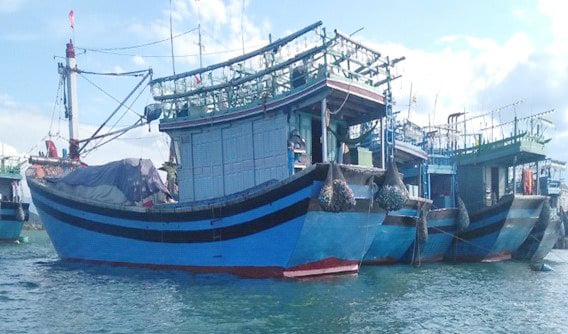
The offshore fishing fleet of Canh Duong commune (Quang Trach district) took part in a waste collecting movement. Photo: A. Tuan.
Many fishermen said that a vessel with 7-10 crew members dumped 4 to 6 kilograms of waste into the ocean on average. The amount of waste could be larger for the vessels with more members.
Nguyen Tien, fisherman in Canh Duong commune (Quang Trach district) estimated, "We make around seventeen deep-sea fishing trips a year and each vessel dumps over 100 kg of waste into the sea. In accumulation, the amount of waste generated by the entire province fishing fleet can be up to hundreds of tons."
However they were estimated figures based on deep-sea fishing vessels. In fact Quang Binh province now has approximately 5,000 low-powered fishing boats which also dump a large amount of waste into the ocean.
Nguyen Tien also expressed deep concern about floating garbage on the sea. If the situation is not improved aquatic ecosystem would be seriously damaged, leading to the depletion of marine species.
In the face of this situation, Quang Binh Department of Agriculture and Rural Development along with Quang Binh agricultural trade union have raised awareness and mobilized local fishermen to participate in the movement of collecting garbage and plastic waste during their offshore fishing trips. The project aims to reduce garbage, especially plastic wastes such as plastic bags, bottles, cups and straws, and raise public awareness of marine ecosystem protection.
The Fisheries Sub-Department under Quang Binh Department of Agriculture and Rural Development is a pioneer in mobilizing local fishermen to collect and dump waste at the right places. According to Le Ngoc Linh, Head of Quang Binh Fisheries Sub-Department, the sub-department has coordinated with offices, stations and registration centers for fishing vessels to introduce the program to the fishermen.
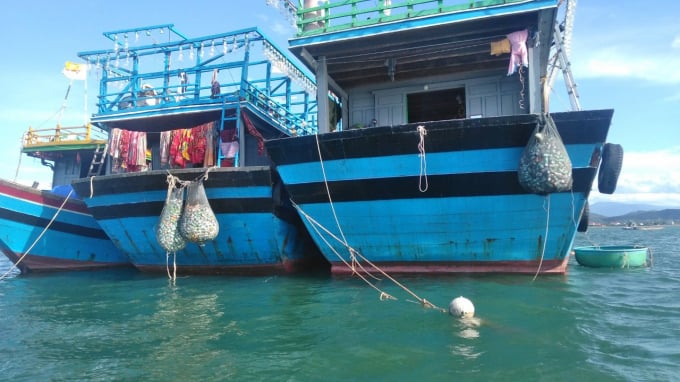
Waste bags at the tails of fishing boats. Photo: A. Tuan.
Fishing vessels participating in the program not only help protect environment but also recycle waste to reduce costs for the fishermen during their fishing trips.
Additionally, Quang Binh Fisheries Sub-department asked the specialized units to raise awareness and mobilize vessel owners to use gear, equipment, food boxes and containers that can be reused instead of single-use products.
Fishermen inside and outside the province have been called to not dump old gear into the ocean. Canh Duong fishermen were chosen to take part in the pilot project "Fishing vessels collect waste." Nguyen Ngoc Tiep, Chairman of Canh Duong Farmers' Association, said local fishermen were very excited and showed an enthusiastic response.
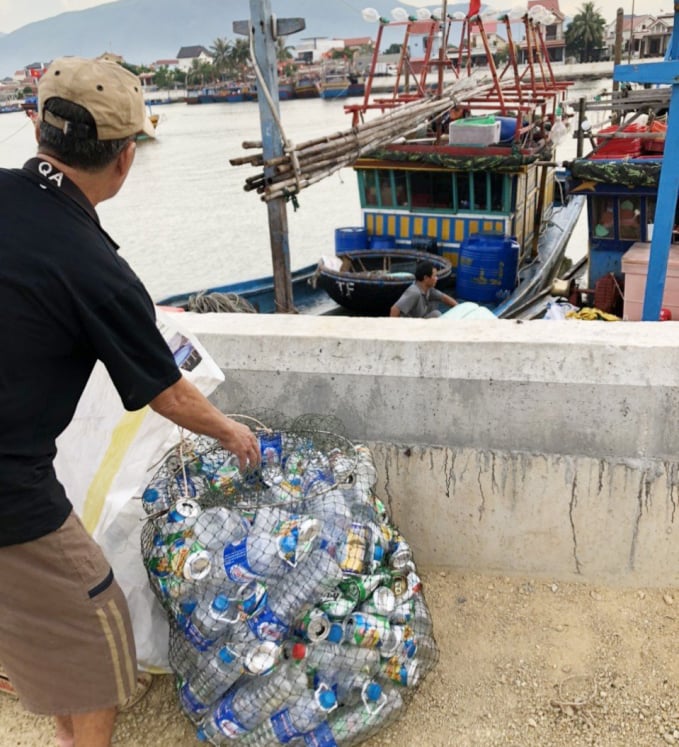
Canh Duong fishermen collecting garbage. Photo: A.Tuan.
"Before the program was launched, the fishermen sometimes forgot and sometimes remembered waste collection. But they are now doing it with a higher degree of self-discipline and taking it seriously," Tiep said.
Fishermen who were leaders and reputable people amongst the fishing communities were chosen as the core to conduct the program.
Fishermen were instructed how to make bags to collect and hold wastes by recycling abandoned nets. This way fishermen can save money.
The local authorities have also tried their best to create favorable conditions in terms of human resources and equipment arrangement for fishermen to collect waste.
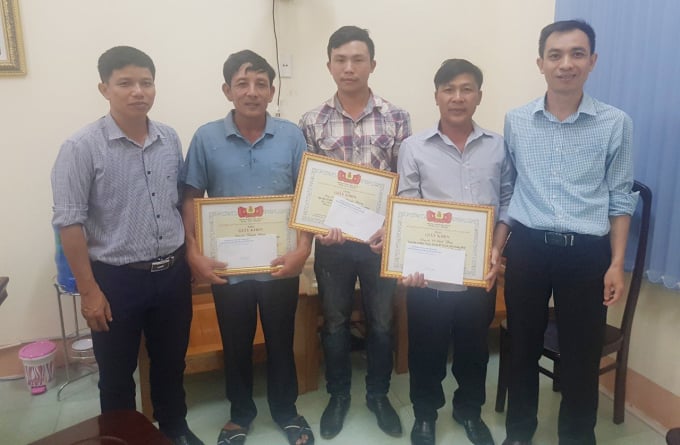
The leading fishermen in the garbage collection movement were rewarded. Photo: A. Tuan.
Starting as a pilot project in Canh Duong commune, the model of fishing fleet collecting garbage and plastic waste has now spread widely across localities. From the beginning of 2021 until now more than 5000 fishing vessels in the communes of Duc Trach and Hai Trach (Bo Trach district), Quang Van and Quang Phuc (Ba Don town) have joined the program.
Fisherman Nguyen Van Ban (Quang Van commune) said, "We crew members on fishing vessels are now aware of putting garbage in small bags. At the end of the day we put them all in a bigger bag at the tail of our boat. When we arrive at the shore we take them to the garbage collection sites for treatment. We have now got acquainted with collecting waste from the ocean when we go offshore fishing."
TranThi Thanh Huyen, Chairwomen of Quang Binh Agricultural trade union said the program initially helped raise public awareness of plastic waste and single-use plastics, and at the same time reduced waste dumped into the ocean. Le Ngoc Linh, Head of Quang Binh Fisheries Sub-Department, said the agency will continue to direct and strengthen the communication activities and mobilization work to encourage fishermen across the province to participate in the program.
"We want to make coastal fishing communities see the practical value of the program that does not require any additional costs or labors," Linh added.
Translated by Mai Tham
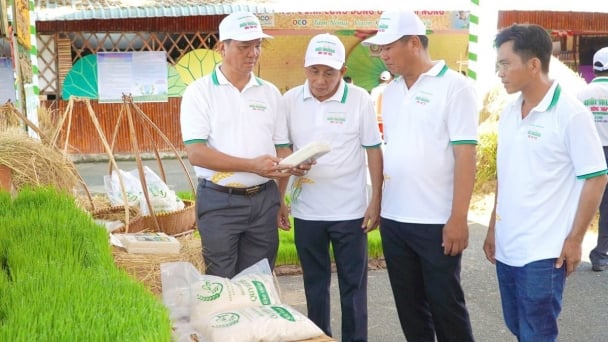
(VAN) Dong Thap has launched a meeting in response to the Action Month for the Environment under the theme 'Live Green - Join Hands for a Green Economy' at Tram Chim National Park.
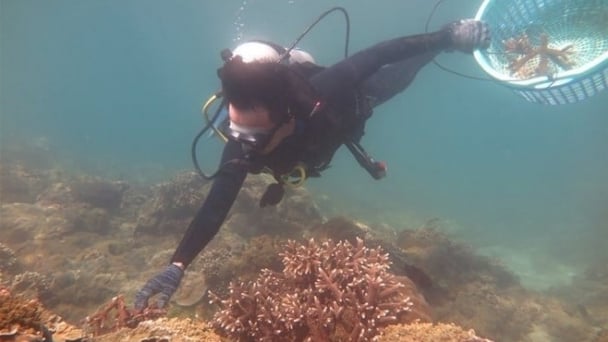
(VAN) The ocean has the capacity to absorb millions of tons of carbon, provided that mangrove forests, coral reefs, and biodiversity are protected.
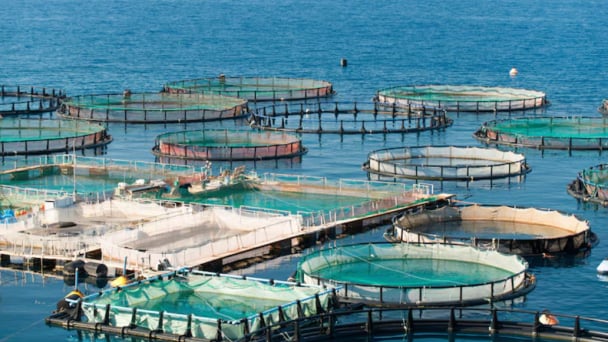
(VAN) Technology is redrawing the map of Vietnamese aquaculture: more modern, greener, and more sustainable.

(VAN) Novel process harnesses machine learning to reveal groups of genes that determine how efficiently plants use nitrogen.

(VAN) Several scientists and farmers are experimenting with soil treatment in some key durian-growing regions such as Cai Lay (Tien Giang), Dak Song, Gia Nghia, and Dak R’lap (Dak Nong).
/2025/05/25/4127-3-073637_820.jpg)
(VAN) Thanks to the promotion from an FAO-implemented project, vegetable production in greenhouses in Moc Chau has seen strong development, from 1.5 hectares in 2021 to nearly 50 hectares in 2024.

(VAN) FAO has recently supported USD 140,000 to implement the project 'Risk mitigation human-animal interface risks through disease control initiatives in pig farming.'